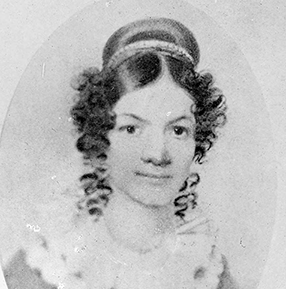Lines Written at Castle Island, Lake Superior
translated from the Anishinaabemowin
Here in my native inland sea
From pain and sickness would I flee
And from its shores and island bright
Gather a store of sweet delight.
Lone island of the saltless sea!
How wide, how sweet, how fresh and free
How all transporting—is the view
Of rocks and skies and waters blue
Uniting, as a song’s sweet strains
To tell, here nature only reigns.
Ah, nature! here forever sway
Far from the haunts of men away
For here, there are no sordid fears,
No crimes, no misery, no tears
No pride of wealth; the heart to fill,
No laws to treat my people ill.
This poem is in the public domain. Published in Poem-a-Day on November 12, 2022, by the Academy of American Poets.
“Lines Written at Castle Island, Lake Superior” is a translation of an original poem written in Anishinaabemowin by Jane Johnston Schoolcraft, translated either by the poet herself or by her husband, Henry Rowe Schoolcraft; at present, only the translation survives. As Robert Dale Parker, professor of English and American Indian studies at the University of Illinois, notes in The Sound the Stars Make Rushing Through the Sky: The Writings of Jane Johnston Schoolcraft (University of Pennsylvania Press, 2007), various drafts of the translation exist within multiple manuscripts, including one by her husband that recounts a journey across Lake Superior, when the poet traveled with her husband and children to an unnamed, isolated island, for which she provided the name “Castle Island” on account of its “castellated appearance at a distance.” Parker writes, “The resentment of cosmopolitan artificiality fits what we might expect from someone who preferred life away from the cities and resented the exoticizing gaze she met in New York. Even so, the resentment of laws that mistreat her people stands out with its uncharacteristically direct political statement. [. . .] It seems telling that poetry in general and poetry about her devotion to the region in particular would bring out from Jane Johnston Schoolcraft this passionate anticolonialist lament.”

